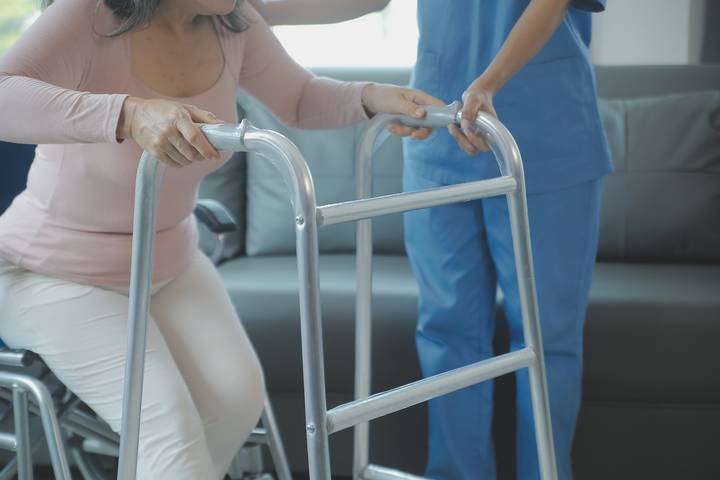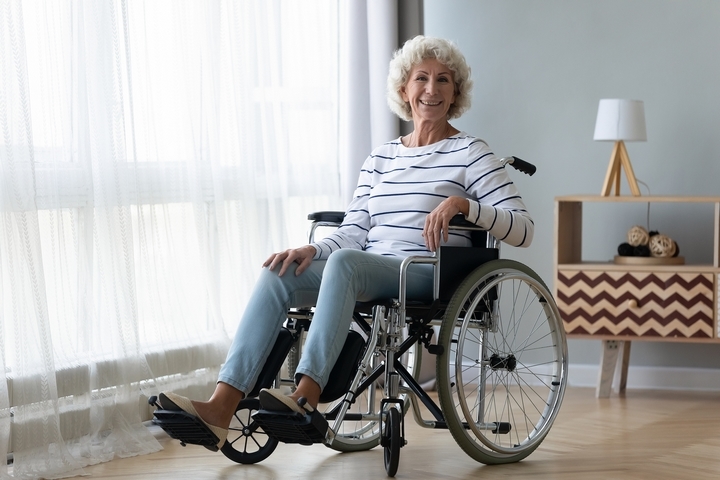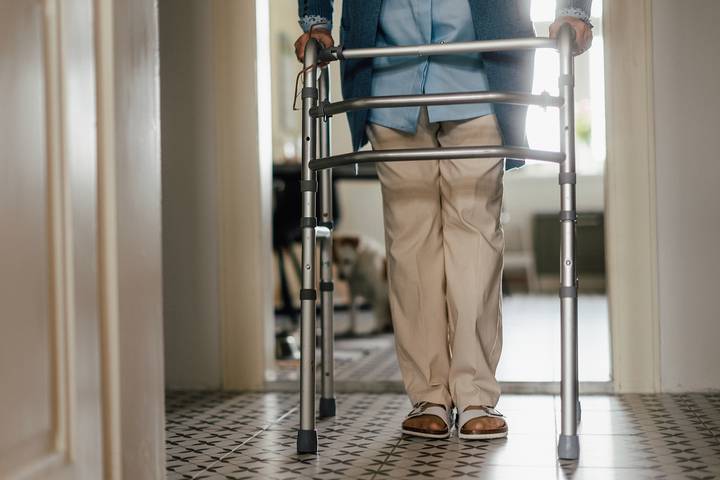
What to Do When an Elderly Parent Can’t Walk Well
Have you noticed that one of your elderly parents has mobility issues?
As sad as it can be to see your beloved parent having trouble walking or climbing stairs, remember that you are not powerless. You can do many things to help them, even if they insist on living in their home instead of going to a retirement or nursing home.
If you have been wondering what to do when an elderly parent can’t walk well, keep reading.
1. Make sure they see a doctor

There are different reasons why an elderly parent might not be able to walk well. And since mobility issues can be related to other medical conditions, it’s a good idea to make sure they see a doctor for an evaluation and a proper diagnosis.
The doctor will assess your elderly parent’s upper and lower body strength and figure out whether they could have trouble walking because of muscle weakness. They will also determine whether their mobility issues could be caused by arthritis, osteoporosis, fibromyalgia, a stroke, or Parkinson’s disease.
2. Help them get the right mobility device

Even if the doctor doesn’t recommend a mobility device, it might be a good idea to get one for your elderly parent. As long as they can still walk, you don’t want them to sit in a wheelchair or use an electric scooter to get around.
With the right mobility aid, they will be able to keep walking and could even regain some balance and mobility over time.
But what type of mobility device should they choose?
A cane is perfect for an elderly parent with minimal mobility issues. If they only need some support to help them keep their balance, this is a lightweight and simple option.
As for walkers, they are ideal for someone who needs more support and assistance with weight bearing. They are more difficult to use than canes and take up more space.
There are also rolling walkers, which are great for outdoor use. Since your elderly parent would not need to lift their rolling walker, using it would be less tiring than a regular one.
3. Encourage them to move and exercise

Depending on the doctor’s diagnosis, medication or surgery could help resolve your elderly parent’s mobility issues.
Physical therapy could help as well. If they can’t walk well because of muscle weakness, it’s important to encourage them to keep moving their body. Regularly doing light exercises should help them strengthen their muscles and improve their balance to improve their situation.
A physical therapist can recommend exercises they can perform without pain or discomfort. Over time, your elderly parent might be able to regain their mobility, their flexibility, and their range of motion.
4. Install handrails and non-slip mats

If your elderly parent lives independently, you could help them ensure that their home is not making it more difficult for them to walk and get around.
See if furniture or other obstacles could be moved to prevent your parent from tripping them. You could also install handrails in some areas of their home, such as in the bathroom and staircases.
Non-slip mats could also be a good idea to help prevent a bad fall. Do what you can to ensure your elderly parent can move safely in their home despite their mobility issues.
However, it might be useful to call a contractor for help depending on their situation. Modifying a few features of their home, and perhaps even installing a stairlift, should help them stay independent much longer.
5. Talk to them about assistive technologies

Another thing you can do when an elderly parent can’t walk well is look into assistive technologies. For example, a smart home device controlled by voice command will allow them to get help if they fall and can’t get back up.
A medical alert is another interesting option. It can take the form of a button on a necklace or a bracelet, and it allows your elderly parent to get emergency help if they fall because of their mobility issues.
A medical alert system can feature fall detection technology. This technology can detect a fall and alert you or a monitoring center, depending on your preferences. This ensures that if ever your elderly parent falls and is not able to press their medical alert button, they will still be able to receive the help they need quickly.
Assistive technologies help protect your peace of mind, and they allow your elderly parent to stay independent and to know that help will come to them if ever they need it.
